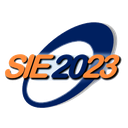Executive Secretary

XX International Symposium of Electrical Engineering
SIE 2023
Abstract
The fourth industrial revolution has a strong impact on education and although the initial changes belong more to a purely technological field, the transformations that they introduce are directly reflected in the behavior of society and in the alteration of job profiles. Faced with this change, Education 4.0 implies a paradigm shift since it is an educational proposal that tries to adapt to the new reality, characterized by connectivity and technology and focuses on the skills that students need to function daily and in their laboral future. This work shows an experience in the teaching of the Elective I subject, in the 1st year of the Automation Engineering career and the general objective is to analyze the results obtained in the subject with the application of the Flipped Classroom learning strategy. . The analysis carried out showed that prioritizing systematic evaluation, giving weight to teamwork, to the ideas they contribute, the way they are presented and defended is essential to obtain the desired objectives in the training process. The result obtained pays tribute to the doctoral thesis work of the main author and to the project Introduction of New Teaching and Learning Methodologies in the Automation Engineering career, which responds to the Higher Education and Sustainable Development program. Key words: education 4.0, competences, learning strategy, training process.
Resumen
La cuarta revolución industrial tiene un fuerte impacto en la educación y aunque los cambios iniciales pertenezcan más a un ámbito puramente tecnológico, las trasformaciones que introducen se ven reflejadas de manera directa en las conductas de la sociedad y en la alteración de los perfiles laborales. Frente a este cambio la Educación 4.0 implica un cambio de paradigma pues se trata de una propuesta educativa que intenta adaptarse a la nueva realidad, caracterizada por la conectividad y la tecnología y se enfoca en las competencias que ameritan los estudiantes para desenvolverse diariamente y en su futuro laboral. En este trabajo se muestra una experiencia en la impartición de la asignatura Electiva I, en el 1er año de la carrera de Ingeniería en Automática y el objetivo general presentar los resultados obtenidos en la asignatura con la aplicación de la estrategia de aprendizaje de Aula Invertida. El análisis realizado mostró que priorizar la evaluación sistemática, dándole peso, al trabajo en equipos, a las ideas que aportan, la manera que son presentadas y defendidas es fundamental para obtener los objetivos deseados en el proceso formativo. El resultado obtenido tributa al trabajo de tesis doctoral de la autora principal y al proyecto Introducción de Nuevas Metodologías de enseñanza y aprendizaje en la carrera de Ingeniería en Automática, que responde al programa Educación Superior y Desarrollo Sostenible.
Palabras claves: educación 4.0, competencias, estrategia de aprendizaje, proceso formativo.
About The Speaker

Gilberto Machado Burguera

Vicedecano docente de la Facultad de Ingeniería Eléctrica
Profesor Auxiliar Departamento de Automática
Discussion

